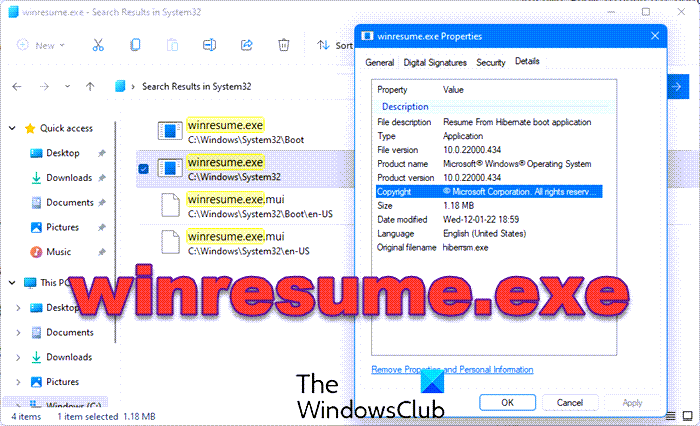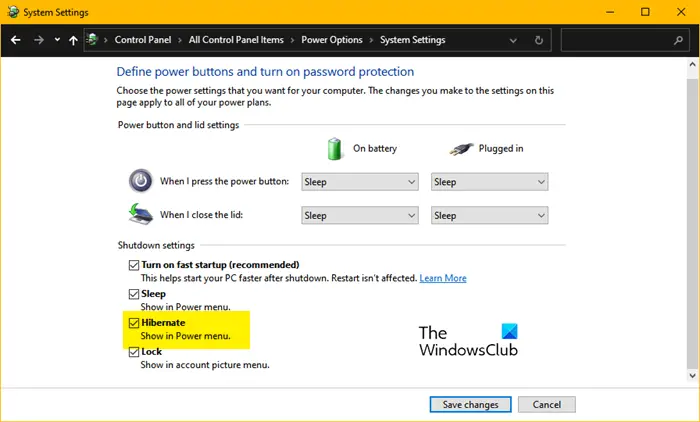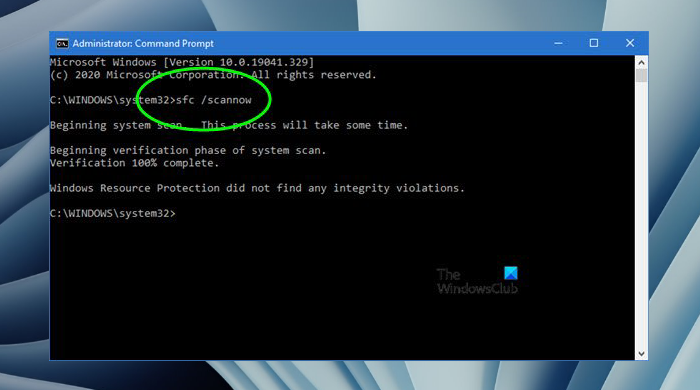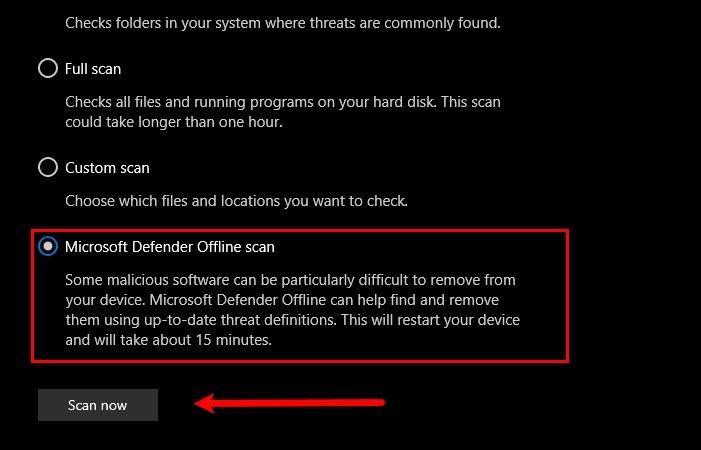If you are wondering what is the winresume.exe file is on your Windows 11/10 computer and where it is located, then we may be able to help you. In this article, we are going to resolve the mystery around the file. We are going to see what is Winresume.exe and where is it located? Also, we will talk about some issues related to this file.

What is Winresume.exe?
Winresume.exe is an important Windows OS file and it is named as Resume From Hibernate boot application. Its job is to help your computer resume from Hibernation Mode. This file usually takes around 1.08MB. and you will also see an accompanying winresume.exe.mui file along with it. This .mui file is a Multi-User Interface language file. When your computer goes into Hibernation, all the programs, and processes that were previously working are sent from RAM to HDD or SDD. It is used to save your computer’s power. Winresume is used to resume those programs that were sent to the nonvolatile memory.
Where is Winresume.exe located?

Instances of the legit winresume.exe file are found in the following location:
C:\Windows\System32
C:\Windows\System32\Boot
If it is located elsewhere, it could well be malware and you need to upload it and get it scanned with VirusTotal.
Read: Difference between Sleep, Hybrid Sleep, Hibernation
How to enable Hibernate on Windows 11/10

Hibernate is usually enabled on Windows computers and can be accessed from the Power button. You can just go there, click on Power > Hibernate.
However, if you can’t find the option, we need to enable Hibernate from the Control Panel. Follow the given steps to do the same.
- Open Control Panel.
- Go to Power Options (make sure that View by is set to Large icons).
- Click on Choose what the power button does and then on Change the settings that are currently unavailable.
- Tick Hibernate and click Save Changes.
This will enable the settings. However, for many users the Hibernate option is missing in Control Panel, if you are one of them, then the linked post will help you resolve the issue.
Read: How to Shutdown, Restart, Sleep, Hibernate, Lock Windows.
How to fix Winresume.exe error
A lot of users have reported that they are seeing errors related to Winresume. Following are some of the error messages.
- winresume.exe Application Error.
- winresume.exe failed.
- winresume.exe has encountered a problem and needs to close. We are sorry for the inconvenience.
- winresume.exe is not a valid Win32 application.
- winresume.exe is not running.
- winresume.exe not found.
- Cannot find winresume.exe.
- Error starting program: winresume.exe.
- Faulting Application Path: winresume.exe
We have classified all of them into two categories. Following are those two categories.
- winresume.exe – Bad Image
- winresume.exe Application Error
Errors in both categories are triggered when your computer leaves hibernation. It basically fails to start the programs that it is meant to resume and show the error. The error doesn’t depend on the size of the app, however, even in normal conditions, resuming demanding programs is a bit difficult for winresume.
However, they can be resolved, and we are going to show how. Following are the solutions that you can use to resolve the issue. But first, check for updates and make sure that you are on the latest Windows built, once, you are done with that, try the following solutions.
- Run SFC
- Run Antivirus
Let us talk about them in detail.
Run SFC

First of all, we need to System File Checker command and see if that works. Since Winresume is the file of your system, this command should, at least in theory, fix the file. So, open Command Prompt as an administrator and run the following command.
sfc /scannow
Hopefully, this will resolve the issue.
Read: Hibernate does not restore the previous state of the PC. How to fix it?
Run Antivirus

The error in question can be triggered by a virus or malware. So, we are going to use Microsoft Antivirus to scan the issue. If you have a third-party antivirus, you can use them as well. But for Windows Defender, you need to follow the given steps.
- Search out Windows Security from the Start Menu.
- Go to Virus & threat protection > Scan options.
- Select Microsoft Defender Offline scan > Scan now.
Let it complete the process and hopefully, your issue will be resolved.
Also read: Can I move hiberfil.sys file to another drive on Windows?